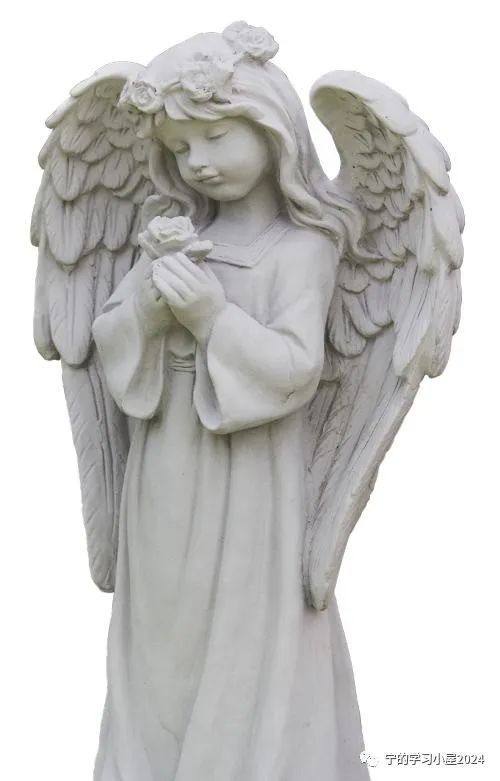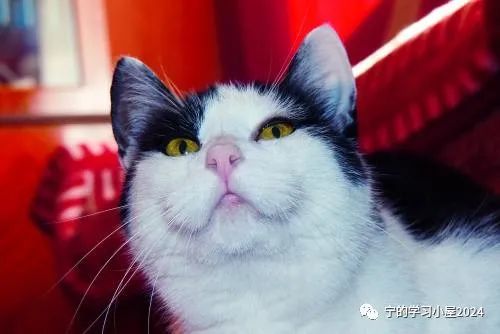从0-1引爆抖音流量地产行业0费获客实操课,跟着地产人何老师,快速高效实操学干货(^_-):nzc890
学了,感觉非常不错,受益匪浅!
需要的宝子+\\/♥:nzc890
相关其他课程都有:咨询方式♥V:nzc890



THE DECAY OF LYING
A DIALOGUE. Persons: Cyril and Vivian. Scene: the Library of a country house in Nottinghamshire.
CYRIL (coming in through the open window from the terrace). My dear Vivian, don't coop yourself up all day in the library. It is a perfectly lovely afternoon. The air is exquisite. There is a mist upon the woods, like the purple bloom upon a plum. Let us go and lie on the grass and smoke cigarettes and enjoy Nature.
VIVIAN. Enjoy Nature! I am glad to say that I have entirely lost that faculty. People tell us that Art makes us love Nature more than we loved her before; that it reveals her secrets to us; and that after a careful study of Corot and Constable we see things in her that had escaped our observation. My own experience is that the more we study Art, the less we care for Nature. What Art really reveals to us is Nature's lack of design, her curious crudities, her extraordinary monotony, her absolutely unfinished condition. Nature has good intentions, of course, but, as Aristotle once said, she cannot carry them out. When I look at a landscape I cannot help seeing all its defects. It is fortunate for us, however, that Nature is so imperfect, as otherwise we should have no art at all. Art is our spirited protest, our gallant attempt to teach Nature her proper place. As for the infinite variety of Nature, that is a pure myth. It is not to be found in Nature herself. It resides in the imagination, or fancy, or cultivated blindness of the man who looks at her.
CYRIL. Well, you need not look at the landscape. You can lie on the grass and smoke and talk.
VIVIAN. But Nature is so uncomfortable. Grass is hard and lumpy and damp, and full of dreadful black insects. Why, even Morris's poorest workman could make you a more comfortable seat than the whole of Nature can. Nature pales before the furniture of 'the street which from Oxford has borrowed its name,' as the poet you love so much once vilely phrased it. I don't complain. If Nature had been comfortable, mankind would never have invented architecture, and I prefer houses to the open air. In a house we all feel of the proper proportions. Everything is subordinated to us, fashioned for our use and our pleasure. Egotism itself, which is so necessary to a proper sense of human dignity, is entirely the result of indoor life. Out of doors one becomes abstract and impersonal. One's individuality absolutely leaves one. And then Nature is so indifferent, so unappreciative. Whenever I am walking in the park here, I always feel that I am no more to her than the cattle that browse on the slope, or the burdock that blooms in the ditch. Nothing is more evident than that Nature hates Mind. Thinking is the most unhealthy thing in the world, and people die of it just as they die of any other disease. Fortunately, in England at any rate, thought is not catching. Our splendid physique as a people is entirely due to our national stupidity. I only hope we shall be able to keep this great historic bulwark of our happiness for many years to come; but I am afraid that we are beginning to be over-educated; at least everybody who is incapable of learning has taken to teaching - that is really what our enthusiasm for education has come to. In the meantime, you had better go back to your wearisome uncomfortable Nature, and leave me to correct my proofs.
CYRIL. Writing an article! That is not very consistent after what you have just said.
VIVIAN. Who wants to be consistent? The dullard and the doctrinaire, the tedious people who carry out their principles to the bitter end of action, to the REDUCTIO AD ABSURDUM of practice. Not I. Like Emerson, I write over the door of my library the word 'Whim.' Besides, my article is really a most salutary and valuable warning. If it is attended to, there may be a new Renaissance of Art.
CYRIL. What is the subject?
VIVIAN. I intend to call it 'The Decay of Lying: A Protest.'
CYRIL. Lying! I should have thought that our politicians kept up that habit.
VIVIAN. I assure you that they do not. They never rise beyond the level of misrepresentation, and actually condescend to prove, to discuss, to argue. How different from the temper of the true liar, with his frank, fearless statements, his superb irresponsibility, his healthy, natural disdain of proof of any kind! After all, what is a fine lie? Simply that which is its own evidence. If a man is sufficiently unimaginative to produce evidence in support of a lie, he might just as well speak the truth at once. No, the politicians won't do. Something may, perhaps, be urged on behalf of the Bar. The mantle of the Sophist has fallen on its members. Their feigned ardours and unreal rhetoric are delightful. They can make the worse appear the better cause, as though they were fresh from Leontine schools, and have been known to wrest from reluctant juries triumphant verdicts of acquittal for their clients, even when those clients, as often happens, were clearly and unmistakeably innocent. But they are briefed by the prosaic, and are not ashamed to appeal to precedent. In spite of their endeavours, the truth will out. Newspapers, even, have degenerated. They may now be absolutely relied upon. One feels it as one wades through their columns. It is always the unreadable that occurs. I am afraid that there is not much to be said in favour of either the lawyer or the journalist. Besides, what I am pleading for is Lying in art. Shall I read you what I have written? It might do you a great deal of good.
CYRIL. Certainly, if you give me a cigarette. Thanks. By the way, what magazine do you intend it for?
VIVIAN. For the RETROSPECTIVE REVIEW. I think I told you that the elect had revived it.
CYRIL. Whom do you mean by 'the elect'?
VIVIAN. Oh, The Tired Hedonists, of course. It is a club to which I belong. We are supposed to wear faded roses in our button-holes when we meet, and to have a sort of cult for Domitian. I am afraid you are not eligible. You are too fond of simple pleasures.
CYRIL. I should be black-balled on the ground of animal spirits, I suppose?
VIVIAN. Probably. Besides, you are a little too old. We don't admit anybody who is of the usual age.
CYRIL. Well, I should fancy you are all a good deal bored with each other.
VIVIAN. We are. This is one of the objects of the club. Now, if you promise not to interrupt too often, I will read you my article.
CYRIL. You will find me all attention.
VIVIAN (reading in a very clear, musical voice). THE DECAY OF LYING: A PROTEST. - One of the chief causes that can be assigned for the curiously commonplace character of most of the literature of our age is undoubtedly the decay of Lying as an art, a science, and a social pleasure. The ancient historians gave us delightful fiction in the form of fact; the modem novelist presents us with dull facts under the guise of fiction. The Blue-Book is rapidly becoming his ideal both for method and manner. He has his tedious DOCUMENT HUMAIN, his miserable little COIN DE LA CREATION, into which he peers with his microscope. He is to be found at the Librairie Nationale, or at the British Museum, shamelessly reading up his subject. He has not even the courage of other people's ideas, but insists on going directly to life for everything, and ultimately, between encyclopaedias and personal experience, he comes to the ground, having drawn his types from the family circle or from the weekly washerwoman, and having acquired an amount of useful information from which never, even in his most meditative moments, can he thoroughly free himself.
'The lose that results to literature in general from this false ideal of our time can hardly be overestimated. People have a careless way of talking about a "born liar," just as they talk about a "born poet." But in both cases they are wrong. Lying and poetry are arts - arts, as Pinto saw, not unconnected with each other - and they require the most careful study, the most disinterested devotion. Indeed, they have their technique, just as the more material arts of painting and sculpture have, their subtle secrets of form and colour, their craft-mysteries, their deliberate artistic methods. As one knows the poet by his fine music, so one can recognise the liar by his rich rhythmic utterance, and in neither case will the casual inspiration of the moment suffice. Here, as elsewhere, practice must, precede perfection. But in modern days while the fashion of writing poetry has become far too common, and should, if possible, be discouraged, the fashion of lying has almost fallen into disrepute. Many a young man starts in life with a natural gift for exaggeration which, if nurtured in congenial and sympathetic surroundings, or by the imitation of the best models, might grow into something really great and wonderful. But, as a rule, he comes to nothing. He either falls into careless habits of accuracy - '
CYRIL. My dear fellow!
VIVIAN. Please don't interrupt in the middle of a sentence. 'He either falls into careless habits of accuracy, or takes to frequenting the society of the aged and the well-informed. Both things are equally fatal to his imagination, as indeed they would be fatal to the imagination of anybody, and in a short time he develops a morbid and unhealthy faculty of truth-telling, begins to verify all statements made in his presence, has no hesitation in contradicting people who are much younger than himself, and often ends by writing novels which are so lifelike that no one can possibly believe in their probability. This is no isolated instance that we are giving. It is simply one example out of many; and if something cannot be done to check, or at least to modify, our monstrous worship of facts, Art will become sterile, and beauty will pass away from the land.
'Even Mr. Robert Louis Stevenson, that delightful master of delicate and fanciful prose, is tainted with this modern vice, for we know positively no other name for it. There is such a thing as robbing a story of its reality by trying to make it too true, and THE BLACK ARROW is so inartistic as not to contain a single anachronism to boast of, while the transformation of Dr. Jekyll reads dangerously like an experiment out of the LANCET. As for Mr. Rider Haggard, who really has, or had once, the makings of a perfectly magnificent liar, he is now so afraid of being suspected of genius that when he does tell us anything marvellous, he feels bound to invent a personal reminiscence, and to put it into a footnote as a kind of cowardly corroboration. Nor are our other novelists much better. Mr. Henry James writes fiction as if it were a painful duty, and wastes upon mean motives and imperceptible 'points of view" his neat literary style, his felicitous phrases, his swift and caustic satire. Mr. Hall Caine, it is true, aims at the grandiose, but then he writes at the top of his voice. He is so loud that one cannot bear what he says. Mr. James Payn is an adept in the art of concealing what is not worth finding. He hunts down the obvious with the enthusiasm of a short-sighted detective. As one turns over the pages, the suspense of the author becomes almost unbearable. The horses of Mr. William Black's phaeton do not soar towards the sun. They merely frighten the sky at evening into violent chromolithographic effects. On seeing them approach, the peasants take refuge in dialect. Mrs. Oliphant prattles pleasantly about curates, lawn-tennis parties, domesticity, and other wearisome things. Mr. Marion Crawford has immolated himself upon the altar of local colour. He is like the lady in the French comedy who keeps talking about "le beau ciel d'Italie." Besides, he has fallen into the bad habit of uttering moral platitudes. He is always telling us that to be good is to be good, and that to be bad is to be wicked. At times he is almost edifying. ROBERT ELSMERE is of course a masterpiece - a masterpiece of the "genre ennuyeux," the one form of literature that the English people seems thoroughly to enjoy. A thoughtful young friend of ours once told us that it reminded him of the sort of conversation that goes on at a meat tea in the house of a serious Nonconformist family, and we can quite believe it. Indeed it is only in England that such a book could be produced. England is the home of lost ideas. As for that great and daily increasing school of novelists for whom the sun always rises in the East-End, the only thing that can be said about them is that they find life crude, and leave it raw.
'In France, though nothing so deliberately tedious as ROBERT ELSMERE has been produced, things are not much better. M. Guy de Maupassant, with his keen mordant irony and his hard vivid style, strips life of the few poor rags that still cover her, and shows us foul sore and festering wound. He writes lurid little tragedies in which everybody is ridiculous; bitter comedies at which one cannot laugh for very tears. M. Zola, true to the lofty principle that he lays down in one of his pronunciamientos on literature, "L'homme de genie n'a jamais d'esprit," is determined to show that, if he has not got genius, he can at least be dull. And how well he succeeds! He is not without power. Indeed at times, as in GERMINAL, there is something almost epic in his work. But his work is entirely wrong from beginning to end, and wrong not on the ground of morals, but on the ground of art. From any ethical standpoint it is just what it should be. The author is perfectly truthful, and describes things exactly as they happen. What more can any moralist desire? We have no sympathy at all with the moral indignation of our time against M. Zola. It is simply the indignation of Tartuffe on being exposed. But from the standpoint of art, what can be said in favour of the author of L'ASSOMMOIR, NANA and POT-BOUILLE? Nothing. Mr. Ruskin once described the characters in George Eliot's novels as being like the sweepings of a Pentonville omnibus, but M. Zola's characters are much worse. They have their dreary vices, and their drearier virtues. The record of their lives is absolutely without interest. Who cares what happens to them? In literature we require distinction, charm, beauty and imaginative power. We don't want to be harrowed and disgusted with an account of the doings of the lower orders. M. Daudet is better. He has wit, a light touch and an amusing style. But he has lately committed literary suicide. Nobody can possibly care for Delobelle with his "Il faut lutter pour l'art," or for Valmajour with his eternal refrain about the nightingale, or for the poet in JACK with his "mots cruels," now that we have learned from VINGT ANS DE MA VIE LITTERAIRE that these characters were taken directly from life. To us they seem to have suddenly lost all their vitality, all the few qualities they ever possessed. The only real people are the people who never existed, and if a novelist is base enough to go to life for his personages he should at least pretend that they are creations, and not boast of them as copies. The justification of a character in a novel is not that other persons are what they are, but that the author is what he is. Otherwise the novel is not a work of art. As for M. Paul Bourget, the master of the ROMAN PSYCHOLOGIQUE, he commits the error of imagining that the men and women of modern life are capable of being infinitely analysed for an innumerable series of chapters. In point of fact what is interesting about people in good society - and M. Bourget rarely moves out of the Faubourg St. Germain, except to come to London, - is the mask that each one of them wears, not the reality that lies behind the mask. It is a humiliating confession, but we are all of us made out of the same stuff. In Falstaff there is something of Hamlet, in Hamlet there is not a little of Falstaff. The fat knight has his moods of melancholy, and the young prince his moments of coarse humour. Where we differ from each other is purely in accidentals: in dress, manner, tone of voice, religious opinions, personal appearance, tricks of habit and the like. The more one analyses people, the more all reasons for analysis disappear. Sooner or later one comes to that dreadful universal thing called human nature. Indeed, as any one who has ever worked among the poor knows only too well, the brotherhood of man is no mere poet's dream, it is a most depressing and humiliating reality; and if a writer insists upon analysing the upper classes, he might just as well write of match-girls and costermongers at once.' However, my dear Cyril, I will not detain you any further just here. I quite admit that modern novels have many good points. All I insist on is that, as a class, they are quite unreadable.
CYRIL. That is certainly a very grave qualification, but I must say that I think you are rather unfair in some of your strictures. I like THE DEEMSTER, and THE DAUGHTER OF HETH, and LE DISCIPLE, and MR. ISAACS, and as for ROBERT ELSMERE, I am quite devoted to it. Not that I can look upon it as a serious work. As a statement of the problems that confront the earnest Christian it is ridiculous and antiquated. It is simply Arnold's LITERATURE AND DOGMA with the literature left out. It is as much behind the age as Paley's EVIDENCES, or Colenso's method of Biblical exegesis. Nor could anything be less impressive than the unfortunate hero gravely heralding a dawn that rose long ago, and so completely missing its true significance that he proposes to carry on the business of the old firm under the new name. On the other hand, it contains several clever caricatures, and a heap of delightful quotations, and Green's philosophy very pleasantly sugars the somewhat bitter pill of the author's fiction. I also cannot help expressing my surprise that you have said nothing about the two novelists whom you are always reading, Balzac and George Meredith. Surely they are realists, both of them?
VIVIAN. Ah! Meredith! Who can define him? His style is chaos illumined by flashes of lightning. As a writer he has mastered everything except language: as a novelist he can do everything, except tell a story: as an artist he is everything except articulate. Somebody in Shakespeare - Touchstone, I think - talks about a man who is always breaking his shins over his own wit, and it seems to me that this might serve as the basis for a criticism of Meredith's method. But whatever he is, he is not a realist. Or rather I would say that he is a child of realism who is not on speaking terms with his father. By deliberate choice he has made himself a romanticist. He has refused to bow the knee to Baal, and after all, even if the man's fine spirit did not revolt against the noisy assertions of realism, his style would be quite sufficient of itself to keep life at a respectful distance. By its means he has planted round his garden a hedge full of thorns, and red with wonderful roses. As for Balzac, he was a most remarkable combination of the artistic temperament with the scientific spirit. The latter he bequeathed to his disciples. The former was entirely his own. The difference between such a book as M. Zola's L'ASSOMMOIR and Balzac's ILLUSIONS PERDUES is the difference between unimaginative realism and imaginative reality. 'All Balzac's characters;' said Baudelaire, 'are gifted with the same ardour of life that animated himself. All his fictions are as deeply coloured as dreams. Each mind is a weapon loaded to the muzzle with will. The very scullions have genius.' A steady course of Balzac reduces our living friends to shadows, and our acquaintances to the shadows of shades. His characters have a kind of fervent fiery-coloured existence. They dominate us, and defy scepticism. One of the greatest tragedies of my life is the death of Lucien de Rubempre. It is a grief from which I have never been able completely to rid myself. It haunts me in my moments of pleasure. I remember it when I laugh. But Balzac is no more a realist than Holbein was. He created life, he did not copy it. I admit, however, that he set far too high a value on modernity of form, and that, consequently, there is no book of his that, as an artistic masterpiece, can rank with SALAMMBO or ESMOND, or THE CLOISTER AND THE HEARTH, or the VICOMTE DE BRAGELONNE.
CYRIL. Do you object to modernity of form, then?
VIVIAN. Yes. It is a huge price to pay for a very poor result. Pure modernity of form is always somewhat vulgarising. It cannot help being so. The public imagine that, because they are interested in their immediate surroundings, Art should be interested in them also, and should take them as her subject- matter. But the mere fact that they are interested in these things makes them unsuitable subjects for Art. The only beautiful things, as somebody once




课程我有,如你也有需要,可联系我小编❥(^_-):nzc890
~仅用于试 学及购买课程之参考,切勿用于其他用途,请支持购买正版课程!
免责申明:
公众号大部分资源来源于网络,仅供学习和交流使用,严禁商用!如有侵权请联系我们删除!,更多从0-1引爆抖音流量地产行业0费获客实操课,跟着地产人何老师,快速高效实操学干货 tH内容,欢迎持续关注我们!!本文中所有从0-1引爆抖音流量地产行业0费获客实操课,跟着地产人何老师,快速高效实操学干货 tH相关图片均来自于CC0无版权图片,如有侵权尽快联系我们删除。

 上海市蒂艾孚网络科技有限公司
上海市蒂艾孚网络科技有限公司





发表评论
发表评论: